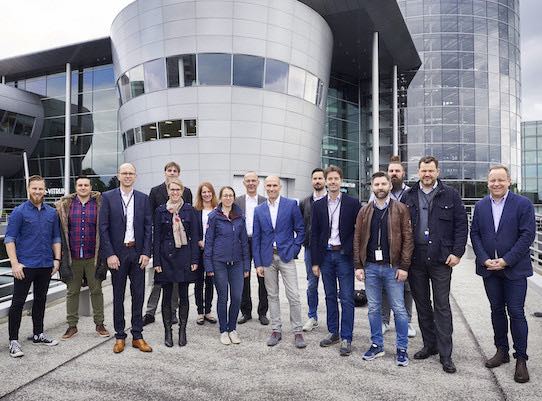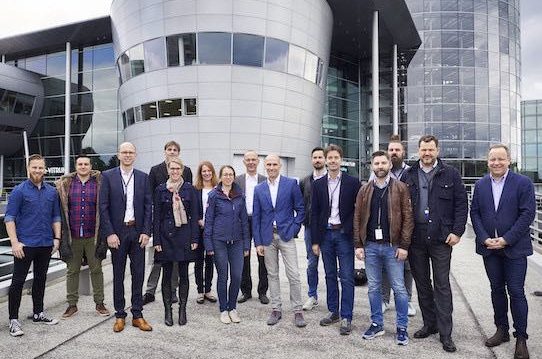New startups for Volkswagen incubator
The 4th class moves into the Gläserne Manufaktur in Dresden. The competition was tough. 114 startups applied.

Dresden. Six new start-ups have been decided on for the founders programme in the Future Mobility Incubator at the Gläserne Manufaktur in Dresden. They will start work in the Gläserne Manufaktur in mid May 2019, where they will be able to develop their ideas for market readiness with the support of Volkswagen and the business development team of Saxony’s capital, Dresden. Besides this assistance each company gets up to 15.000 Euro financial support.
The winners will develop diagnosis solutions for batteries, new vehicle navigation systems, innovative image processing, smart-home solutions for cars, and retrofit kits for autonomous driving. “We were very impressed by the wide range of ideas. We intend to develop the ideas for new mobility solutions from mid-May and prepare them for the market with our experts in Wolfsburg, Berlin and Dresden, and also the state capital of Dresden”, stated Marco Weiß, head of Future Mobility & Innovation at the Gläserne Manufaktur.
“The new founders class in the Future Mobility Incubator will enhance Dresden’s profile as a founder’s location in the high-tech sector and amplify its magnetic attraction. We are sending a strong signal from Dresden to founders and investors throughout the world”, says Dr Robert Franke, head of the Office for Economic Development of the City of Dresden.
The start-ups in detail:
AVILOO from Vienna: Aviloo is in the process of developing a diagnosis system for batteries for electric vehicles. The health status of the battery can be assessed quickly and cheaply during a short test drive. By doing so, the founders aim to provide a basis for stable resale prices for electric vehicles.
https://aviloo.com
home-iX from Stuttgart: The B2B start-up specialises in smart living solutions. Its platform means that industries and companies, such as car manufacturers, can be involved in networked life and the Internet of Things. Furthermore, home-iX makes smart ecosystems compatible with one another (smart home, smart energy, smart services). This is done by using an integration platform based on artificial intelligence and a uniform interface for existing digital ecosystems.
https://home-ix.com
Kopernikus from Berlin: Kopernikus develops solutions for automated driving. Its mission: to complement today’s production vehicles with a range of automated driving functions as quickly as possible. They aim to achieve this by bundling global self-driving software solutions onto one platform. The technology is manufacturer-specific, the software is adapted to the vehicle models and local conditions.
The first usable solution is Kopernikus’ own development and is based on artificial intelligence. It is paving the way to fully autonomous vehicles: Kopernikus is already capable of enabling cars to drive autonomously on private premises – for example on factory premises, for loading or in workshops.
https://www.kopernikusauto.com
LiGenium from Chemnitz: LiGenium develops, manufactures and sells machine elements, machines and complete systems using renewable materials. The start-up uses high-quality wood-based materials for light, robust and environmentally friendly applications in conveyor technology, including modular loading systems for the automotive industry.
https://www.ligenium.de
NAVENTIK from Chemnitz: Naventik is active in satellite navigation for highly automated and autonomous driving. Its goal is to overcome the technological boundaries of traditional satellite navigation receivers and to guarantee precise localisation in urban areas through innovative software algorithms.
https://www.naventik.de
Visualix from Berlin: Visualix is an expert in image processing. It enables mapping and localisation on standard smartphones accurate to the centimetre.
https://www.visualix.com
STH

